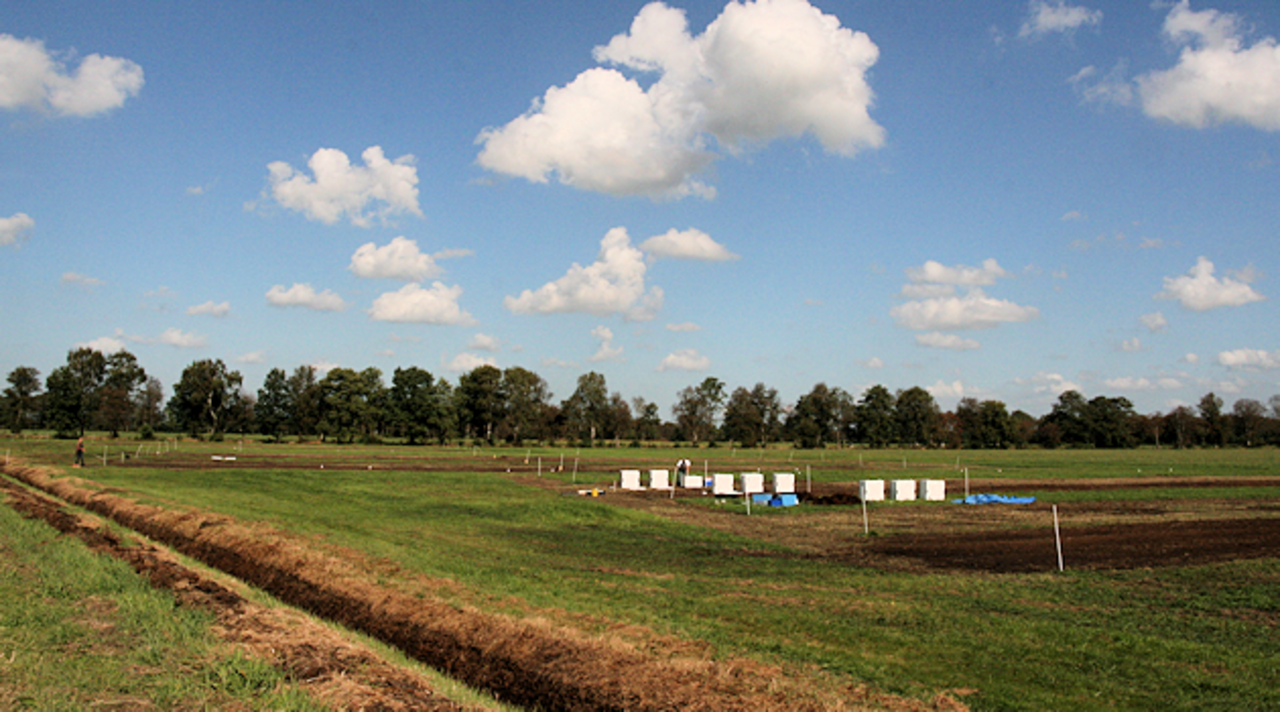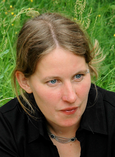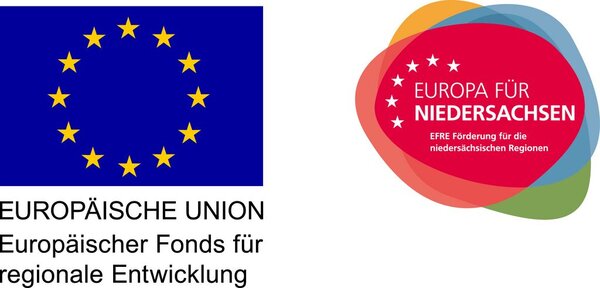Project
Water management for the reduction of GHG emissions from grasslands on peat soils (SWAMPS)

SWAMPS
Is it possible to reduce the high greenhouse gas emissions of intensively used grasslands on peat soils by adapted active water management?
Background and Objective
The joint research project “SWAMPS” is coordinated by the Centre for Grassland Lower Saxony/Bremen. SWAMPS will evaluate different water management and grassland renovation methods to reduce the greenhouse gas emissions from intensively used grassland on peat soils. Controlled subirrigation has not been tested in Germany before. Additionally, peatlands close to the sea are frequently covered with tidal clay sediments. In contrast to sand covers, there have no studies on these soils been conducted yet. The project “SWAMPS” follows an integrated approach and will evaluate agronomic parameters, greenhouse gas emissions, water quality and biodiversity.
Approach
The project will establish two detailed field studies on bog and fen peat, respectively, and furthermore investigate a complete polder area with heterogeneous groundwater levels and soil properties. The Thünen-Team is responsible for the measurement of greenhouse gas emissions. Using manual chambers, we will quantify the emissions of carbon dioxide (net ecosystem exchange), nitrous oxide and methane from grassland with different methods of water management (controlled subirrigation, ditch blocking, and control sites with free subsurface drainage). Furthermore, we will evaluate different methods of grassland renovation and its interaction with different water management methods as well as the effect of clay covers. Our results will be used as an input for management scenarios and for the evaluation of the integrated climate protection effect at the scale of farms and water management units (polders).
Our Research Questions
- How much will greenhouse gas emissions from grasslands on bog and fen peat be reduced by controlled subsurface irrigation and how does this management method perform in comparison to raised water level in the ditches only?
- How do different grassland renovation methods effect the greenhouse gas emissions?
- How do different clay covers from tidal sediments effect the greenhouse gas emissions?
Links and Downloads
Thünen-Contact

Involved Thünen-Partners
Involved external Thünen-Partners
- Grünlandzentrum Niedersachsen/Bremen e.V.
(Ovelgönne, Deutschland) -
Landesamt für Bergbau , Energie und Geologie (LBEG)
(Hannover, Deutschland) - Landwirtschaftskammer Niedersachsen
(Oldenburg, Uelzen, Hannover, Deutschland) -
Carl von Ossietzky Universität Oldenburg
(Oldenburg, Deutschland) -
Carl von Ossietzky Universität Oldenburg
(Oldenburg, Deutschland)
Funding Body
-
Bundesland Niedersachsen
(national, öffentlich) -
European Union (EU)
(international, öffentlich)
Duration
1.2016 - 12.2021
More Information
Project status:
finished
Publications
- 0
Tiemeyer B, Heller S, Oehmke SW, Gatersleben P, Bräuer M, Dettmann U (2024) Effects of water management and grassland renewal on the greenhouse gas emissions from intensively used grassland on bog peat. Agric Forest Meteorol 345:109858, DOI:10.1016/j.agrformet.2023.109858
- 1
Pagenkemper S, Jansen-Minßen F, Krause A, Ernsing-Blaga M, Herzberg I, Kahne L, Höper H, Minke M, Sieber AC, Tiemeyer B, Heller S, Oehmke SW, Bräuer M, Dettmann U, Lange G, Gatersleben P, Schröder U, Giani L, Landscheidt S, Buchwald R, Kupke L (2022) Das Projekt SWAMPS - Verfahrensanalysen und Handlungsoptionen zur Verminderung von Treibhausgasemissionen und zum Schutz von Mooren für landwirtschaftlich genutztes Grünland : Abschlussbericht der Projektjahre 2015 bis 2021. 315 p
- 2
Tiemeyer B, Heller S, Oehmke W, Dettmann U (2021) Auswirkungen von Wassermanagement und Grünlanderneuerung auf die THG-Emissionen von intensiv genutztem Moorgrünland. Braunschweig: Thünen-Institut für Agrarklimaschutz, 2 p, Project Brief Thünen Inst 2021/20, DOI:10.3220/PB1625728774000
- 3
Tiemeyer B, Heller S, Oehmke W, Dettmann U (2021) Effects of water management and grassland renewal on the GHG emissions of intensively used grassland on peat soils. Braunschweig: Thünen Institute of Climate-Smart Agriculture, 1 p, Project Brief Thünen Inst 2021/20a, DOI:10.3220/PB1627289050000
- 4
Heller S, Müller J, Kayser M, Jensen S (2021) Status of plant-available potassium after 17 years of wet grassland restoration on a degraded minerotrophic peat soil [online]. Mires Peat 27:28, zu finden in <http://mires-and-peat.net/modules/download_gallery/dlc.php?file=414&id=1635444200> [zitiert am 20.01.2022], DOI:10.19189/MaP.2021.APG.StA.2158
- 5
Pagenkemper S, Jansen-Minßen F, Höper H, Sieber AC, Minke M, Tiemeyer B, Heller S, Lange G, Schröder U, Gatersleben P, Giani L, Landscheidt S, Buchwald R, Kupke L (2021) SWAMPS-Verbundprojekt - Verfahrensanalysen und Handlungsoptionen zur Verminderung von Treibhausgasemissionen und zum Schutz von Mooren für landwirtschaftlich genutztes Grünland : Zwischenergebnisse der bisherigen Projektlaufzeit (Kernaussagen). 21 p

![[Translate to English:] [Translate to English:]](/media/_processed_/6/4/csm_titel_CO2Kampagne8_afeea2273e.png)
![[Translate to English:] [Translate to English:]](/media/_processed_/4/1/csm_titel_93px_CO2Kampagne8_9b0f3354d4.png)

![[Translate to English:] Logo des Bundesministerium für Ernährung und Landwirtschaft](/media/allgemein/logos/BMEL_Logo.svg)